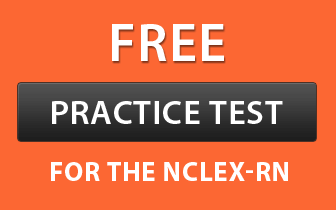Is Nursing a Good Career? 10 Benefits of Being an RN
Becoming a registered nurse (RN) is a popular career path for those interested in healthcare. Once you obtain your RN certification, a nursing career is a safe, reliable, and secure means of making a living. While working as an RN isn’t for everyone, these are the top 10 benefits of choosing a career in nursing.
1. Job Security
The nursing career outlook is strong overall; employment of RNs is expected to grow 12% by 2028 (much faster than the national average) according to the U.S. Bureau of Labor Statistics (BLS). There has already been a 371,500 employment change since 2018 with a national total of over three million nursing occupations. As many healthcare industries continue to feel the effects of a nationwide healthcare shortage, job security for RNs only becomes stronger.
2. Variety of Work Locations
The responsibilities and duties required of RNs lend to a variety of job prospects and work environments — this includes settings such as:
- Academic fields;
- Ambulatory care centers;
- Clinics;
- Community centers;
- Hospitals;
- Mental health facilities;
- Outpatient health facilities;
- Patients’ homes;
- Private practices;
- Rehabilitation centers;
- Schools.
3. Flexible Work Schedules
One of the foremost benefits of this profession is that the RNs are generally able to organize their work schedules as needed. In most cases, you also get paid holidays (or overtime if you work), sick leave, maternity leave, and paid-time-off (PTO). Since there are a lot of areas where RNs are able to work, you can generally look for one that fits your flexibility needs.
Some examples of the most common nursing shifts are as follows:
- Three 12-hour shifts;
- Four 10-hour shifts;
- Five 8-hour shifts.
Generally, healthcare workers will work some of their hours on-call, and this can add to job flexibility, but it can also require reciprocal flexibility of the nurse. The exact parameters of on-call hour requirements will vary from employer to employer.
4. Career Mobility
A career as an RN offers endless opportunities. This is both due to the career ladder possibilities, as well as the multitude of options for work environments and specialties. Although some choose to become an RN as their career end-goal, many choose to pursue additional certifications since they are often paid (either fully, or in a partial amount) by employers. Nurses don’t even have to remain in clinical patient care — specializations like nursing informatics or other administrative and even educational positions mean experienced nurses have even greater career flexibility and advancement potential.
5. Pay
The salary of an RN depends on experience, type of organization, educational background, and the state that you hold your license in. A nurse with highly specialized skills or extensive experience is paid accordingly. According to BLS data on RN employment and salaries, in 2019 the bottom ten percent of RNs made $52,080, the median made $73,300, and the top ten percent made $111,220 annually.
6. Job Satisfaction
Becoming an RN is an extremely rewarding career as it provides you opportunities to help and serve others and to make an impact not only in the lives of severely ill patients but also in the lives of their family members. Thinking about your contribution to a healthy society will definitely leave you feeling content in your career.
7. Traveling Options
Most professions require you to stick to one place, but a career in nursing might allow you to travel to different places. License reciprocity agreements vary from state to state, so you may already be eligible to obtain your RN license in another state with minimal hassle. You may choose to work as a traveling nurse and spend your career traveling both inside and outside the U.S. Some of the options for travel nurse agencies include:
There are also volunteer programs that are designed to foster experiential learning while traveling — some of the most common options include:
8. Insurance Coverage
Most healthcare employers will offer some sort of coverage entirely, or some sort of percentage covered. Traditionally, you will be required to wait 90 days after employment to be eligible for employee-paid benefits. It is important to understand what insurance will be provided for you by the employer prior to accepting a job, and which insurance you will need working as an RN such as malpractice insurance. You will want to also be sure who the insurance coverage extends to, and how much you will need to pay out of pocket each month.
9. Tuition Reimbursement
After you go to nursing school, you might be left with a large amount of debt. Various organizations are willing to offer some form of tuition reimbursement as a part of your benefits packages. This will vary from employer to employer, but most generally offer $5,250 a year for education benefits (mainly because you are required to pay taxes on any contribution over this amount, according to the Internal Revenue Service). In some cases, this is used as a hiring tactic; in other cases, it is used as a strategy to encourage employees to continue their medical education after they are hired.
10. Training Benefits
With recent advancements in nursing sciences and the implementation of artificial intelligence (AI) in healthcare, a successful nursing career requires you to stay adaptable, always be learning, and to accept open challenges. By attending conferences, reading journals, attending graduate schools, and joining specialty organizations, you can stay up-to-date with the latest and greatest trends and training techniques in the field. RNs are generally fully paid for the trips and training they attend for the betterment of their craft. In some cases, employers may just cover travel and lodging expenses.
Read Related Articles
Training Programs for a Registered Nurse





